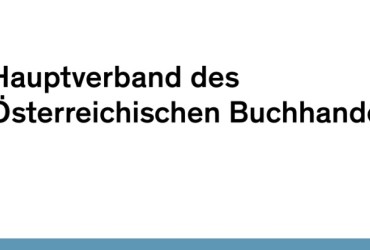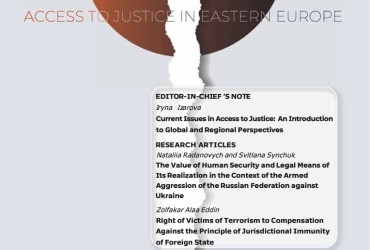
Dec
Special Issue of 2022 was launched
Special Issue of 2022 was launched
We are happy to announce the Special issue of 2022 related to the war in Ukraine has been published!
In this issue, we have collected articles and notes written by authors on various topics related to the war in Ukraine.
Among the research articles, we have a few contributions on the most requested issues. Our authors studied topical questions and tried to find solutions where they found a lack of proper regulations, gaps, and insufficient information on the reality of the war in Ukraine, using the experience of other war conflicts, modern doctrines, and approaches to argue for their conclusions and recommendations.
I would like to express my endless thank to my colleagues, scholars from Ukraine who are working amid the war on topics that are important for all – for the protection of human rights and to develop Ukrainian law and mechanisms for its implementation. I thank all our international authors for their valuable contributions to this discussion. I truly believe that all the conclusions will be useful for further reforms and the main goal – to help prevent war and minimise losses in ongoing conflicts.
I am also happy to have the opportunity to announce a joint discussion with the participation of our authors and our audience – we would be happy to share results and exchange opinions with all who are interested. Please see the announcement on our website.
Enjoy reading and we welcome you to comment and review!
Editor-in-Chief’s Note
About the Special Issue on Access to Justice in Ukraine amid War
Iryna Izarova
Research Articles
PRISONERS OF WAR: SPECIAL STATUS IN THE CRIMINAL PROCEEDINGS OF UKRAINE AND THE RIGHT TO EXCHANGE
Oksana Kaplina
https://doi.org/10.33327/AJEE-18-5.4-a000438
This article is devoted to the relevant issue of the creation of appropriate normative regulation of criminal prosecution of prisoners of war who were captured during the armed conflict in Ukraine and their exchange. Despite the positive dynamics of destabilisation processes taking place all over the world, and in some places connected with the outbreak of military conflicts of an international nature, insufficient attention is paid to the issue of legitimising the process of exchange of prisoners of war in national legal systems.
Using the example of the first sentence in Ukraine to a Russian prisoner of war and relying on the norms of international humanitarian and national law, the author illustrate the specifics of the criminal liability of combatants. Evaluating the procedure of exchange of prisoners of war and criminal proceedings in absentia which were positively introduced in the legislation of Ukraine, it was concluded that the exchange is not an act of forgiveness, but an opportunity to return Ukrainian citizens, which is of the utmost importance in the hierarchy of values for the state.
RUSSIA’S INVASION OF UKRAINE AND THE DOCTRINE OF MALIGN LEGAL OPERATIONS
Brad Fisher
https://doi.org/10.33327/AJEE-18-5.4-a000456
This article asserts that Russian MALOPs provided a near-certain indication of attack in the months leading up to Russia’s total invasion of Ukraine. Furthermore, this research suggests that MALOPs are a principal tool for revisionist states like the Russian Federation and the People’s Republic of China to pursue legal asymmetries in pursuit of geopolitical objectives. Finally, this research recommends a novel approach for responding to this behaviour in the form of the Counter-MALOPs Toolkit: Identify; Disrupt; and Defend.
EVIDENCE IN THE INTERNATIONAL CRIMINAL COURT – THE ROLE OF FORENSIC EXPERTS: THE UKRAINIAN CONTEXT
Oksana Kaluzhna and Kateryna Shunevych
https://doi.org/10.33327/AJEE-18-5.4-a000435
Ukraine faced unprecedented challenges for to the national justice system and the possibility of using international justice to bring the Russian Federation military, officers,and officials to justice after the full-scale invasion of Ukraine by the Russian Federation on 24 February 24, 2022. Since In March 2022, the ICC Prosecutor has started an investigation of into war crimes in Ukraine. In addition, joint investigative groups are carrying out activities. Cooperation between pre-trial investigation bodies of Ukraine through the Prosecutor General of Ukraine with and the International Criminal Court has been established. Therefore, the research of into possible problems in the criminal procedure of prosecution for war crimes is one of the priority areas for Ukrainian law enforcement practice and legal science.
The authors found that several provisions of the joint Order of the Ministry of Internal Affairs of Ukraine, the Ministry of Health of Ukraine, and the Office of the Prosecutor General ‘On approval of the Procedure for interaction between bodies and units of the National Police of Ukraine, health care institutions and the bodies of the Prosecutor’s Office of Ukraine in establishing the fact of the death of a person during martial law on the territory of Ukraine’ dated 9 March 2022 do not correspond to the Code of Criminal Procedure of Ukraine. The authors emphasise that the erroneous provisions of this bylaw could serve as a legal basis for avoiding criminal responsibility for war crimes.
PROTECTION OF THE RIGHT TO HEALTH DURING THE PERIOD OF ARMED CONFLICT: THE EXPERIENCE OF UKRAINE
Tetiana Mykhailichenko, Yuliia Zabuha, Viktoria Babanina and Mykola Syiploki
https://doi.org/10.33327/AJEE-18-5.4-a000434
This article deals with the protection of the right of the civilian population and medical workers to health. The issue of rights violations arises in connection with the armed conflict between the Russian Federation and Ukraine, which has been ongoing since 2014. On 24 February 2022, its second phase began, which has been characterised by a large-scale offensive by the Russian army. The hostilities are still ongoing, and some areas are temporarily occupied. The aim of the present paper is to reveal the essence of the main international legal, and national means of protecting the right to health in a period of armed conflict.
Mohamad Albakjaji
https://doi.org/10.33327/AJEE-18-5.4-a000444
There is no war without catastrophic impacts, not only on humans and states but also on the environment and nature. As with all wars, the question is raised as to whether an invasion or aggression is legitimate according to international law. This research aims to discuss an emerging issue at the international level, which is the responsibility of the aggressor state for the environmental damages incurred by the victim state. This paper discusses the possibility of establishing Russia’s responsibility for the environmental damages incurred in Ukraine. It will also shed light on the possible ways Ukraine may raise Russia’s responsibility, internationally speaking.
The author found that the Russian aggression against the Ukrainian territory has caused severe environmental damages, which cannot go unpunished. Although traditional international law may be insufficient to punish Russia, customary law, warfare law, and international environmental law include rules that may be used to raise the Russian responsibility for these damages.
Reforms Forum Note
Maya Khater
https://doi.org/10.33327/AJEE-18-5.4-n000431
Sexual violence is a significant issue that violates human rights and is a source of increasing concern for women during international and local armed conflicts. It has widespread impacts on civilian communities and on women in particular, with grave and long-lasting health, psychological, and social impacts. Due to its consequences, which include physical, psychological, social, and economic complications, sexual assault is regarded as one of the most serious violations of human rights. The scarcity of judicial trials and prosecutions against perpetrators of this violence is considered to be a driving force behind these crimes.
UNAMENDABLE PROVISIONS OF THE CONSTITUTION AND THE TERRITORIAL INTEGRITY OF UKRAINE
Hryhorii Berchenko, Tetiana Slinko and Oleh Horai
https://doi.org/10.33327/AJEE-18-5.4-n000447
Unamendable constitutional provisions arose with the appearance of the first constitutions in the USA and Norway, but did not become widespread. The unamendability of a republican form of government, included in the Constitution of France in 1885, continued this tradition. Such provisions became more widespread after the Second World War. Countries that gained independence began to include a mention of territorial integrity in such provisions. Ukraine belongs to such countries (the Constitution of 1996). Since 2014, Ukraine has faced encroachment on its territorial integrity by an aggressor state − its eastern neighbor. Given these circumstances, the study of the nature and meaning of unamendable provisions of a constitution has particular relevance.
The paper analysed the legal consequences of violation of territorial integrity, concluding that military aggression, occupation and unacknowledged annexation of part of Ukrainian territory by Russia is not a reason to refuse territorial integrity as an unamendable provision of the Constitution of Ukraine. On the contrary, the protection of this provision should be strengthened.
Case Notes
Oksana Uhrynovska and Yurii Onyskiv
https://doi.org/10.33327/AJEE-18-5.3-n000334
The armed aggression against Ukraine has been started in 2014 when Crimea and part of Ukrainian territory were occupied. It led to the disappearance of number of people and the new notion of missing persons amid military conflict appeared in the legislation of Ukraine. The new law defines the concept of persons who have disappeared due to special circumstances and in connection with a military conflict. The difference between this institution is that the recognition of a missing person is primarily aimed at protecting these persons. The status of a missing person within military conflict provides a person with a number of guarantees in order to protect his/her rights and assist in the search for that person. However, today the implementation of this institute is incomplete. This study aimed to discover the gaps that prevent the full protection of the rights of missing persons and to optimize the activities of the authorities to protect this category of persons, based on the national legislation and case law. It was also discussed the Institution of the Commissioner for Missing Persons in Special Circumstances was introduced in April 2022, aimed to coordinate the authorities, law enforcement agencies on the search for missing persons.
Oleh Yaroshenko and Olena Lutsenko
https://doi.org/10.33327/AJEE-18-5.4-a000466
Maintaining labour regulations and the quality of working conditions is a considerable challenge during wartime and martial law. This paper outlines the changes that have affected the working life of employees who continued in employment, both inside and outside Ukraine, under martial law in 2022. Using a qualitative analysis of Ukrainian labour regulations, ILO and Ukrainian government statistics, and direct observation, we show how the legal regulation of labour relations and working conditions has changed under the influence of active hostilities. During the war in Ukraine, many employees started to work remotely, and some companies have relocated their production facilities to areas where there are no active hostilities and continue to operate. At the same time, the legal regulation and nature of labour relations and the quality of working conditions have changed significantly - yet regulations have failed to keep up with the levels of flexibility and timeliness required to respond effectively in the ongoing crisis.
ADOPTION DURING THE WAR IN UKRAINE: HOW NOT TO LOSE A CHILD
Yuliia Hartman
https://doi.org/10.33327/AJEE-18-5.4-n000440
During martial law, the protection of children’s rights is of the utmost importance. One key aspect is the realisation of the right to raise a child in the family, and one of the ways this can be exercised is through adoption. However, martial law adoption has many nuances and pitfalls that require careful research.
In this article, the author carried out a comprehensive study of both the changes in the legislation of Ukraine in terms of adoption in the context of martial law and the alternatives that can be applied to adoption during wartime. In particular, the following issues were considered: reunification of adoptive parents with an adopted child evacuated outside of Ukraine; transfer of child placement processes to a digital format; adoption conditions and registration of children during martial law; peculiarities of registration of candidates for adoptive parents; circle of subjects who can be adoptive parents during martial law; the functioning of the institute of temporary placement of children in Ukraine and the institute of guardianship and care during martial law; peculiarities of the procedure for trial of adoption cases; and existing national control mechanisms for displaced children. The advantages of temporary placement over adoption during martial law and current practice in this regard are also analysed. In addition, the article provides statistical information about children who suffered as a result of a full-scale war, information about family forms of upbringing, information about the number of court proceedings in the category of adoption cases, as well as foreign experience in overcoming the problem of “children of war”.
DEATH PENALTY IN SO-CALLED DONETSK AND LUHANSK PEOPLES REPUBLICS:
ARBITRARY EXCESSES OF PRO-RUSSIAN REBELS OR ‘BACK TO THE SOURCES’?
Volodymyr Makarchuk, Ivan Terlyuk, Yaryna Bohiv, Olena Romtsiv and Mykhailo Parasiuk
https://doi.org/10.33327/AJEE-18-5.4-n000433
In Ukraine, we are very aware of what fake justice means – the history of the Soviet occupation has taught us lessons. In this incredible article, co-authors were so brave to raise issues of so-called ‘collective courts’, which were held for propaganda purposes, where ‘saboteurs’, marauders, and rapists were sentenced by show of hands. They analyse the so-called ‘Criminal Code’ with its death penalty for ‘especially serious crimes’ without specifying their list of self-proclaimed republics. The authors raise the issue of formal ‘justification’ and direct practice of the death penalty in certain areas of the Donetsk and Luhansk regions of Ukraine affected by the uprising and subjected to Russian aggression. Please enjoy reading this valuable contribution and share it to help protect human rights.
Opinion Article
THE RECOVERY OF UKRAINE IN THE FIELD OF JUSTICE: CHALLENGES AND PRIORITY GOALS
Maryna Stefanchuk
https://doi. org/10.33327/AJEE-18- 5.4-n000467
Currently in Ukraine, a significant objective is to promote the construction of a peaceable and open society, ensuring access to justice for all. Such a system must be effective, accountable, and based on the broad participation of institutions at all levels. This article highlights some of the priority steps in the recovery of the justice system in Ukraine. Special attention is given to the priority goals and problematic aspects of the functioning of the institutions of the national justice system, given the declared aim of forming a sustainable justice system. Current challenges in the field of national justice, priority goals and appropriate measures for their achievement have all been analysed.
With the special attention to the Draft Ukraine Recovery Plan https://uploads-ssl.webflow.com/625d81ec8313622a52e2f031/ 62dea471331181b583d43ec5_Юстиція.pdf
Opinion Article
MEDIATION IN POST-WAR RESTORATION IN UKRAINE
Luiza Romanadze
https://doi.org/10.33327/AJEE-18-5.4-n000432
This article addresses the challenges of developing mediation in Ukraine, the lack of effective coordination between courts and mediators, and issues of low awareness in Ukrainian society about mediation. It is argued that Ukrainian courts and mediation in Ukraine are going concurrent ways so that mediation is not integrated into or reinforcing the court-based litigation system. Meanwhile, the national mediation community must mature through the organization of high-quality interaction with the judicial system. Moreover, the war and post-war period will cause a new workload of civil and commercial disputes that are generally suitable for mediation, especially when the disputants residing in different regions after fleeing from war. This article is aimed at finding sustainable and fast solutions for raising awareness of mediation in Ukrainian society and effective coordination between courts and mediators based on the progress already achieved.
And more!
Please find EPUB version of the Issue available!
Our previous issue is available here 4/2022
The whole our archive is hereAll Issues
More contributions may be found here: Our new gateway Access to Justice Amid War



